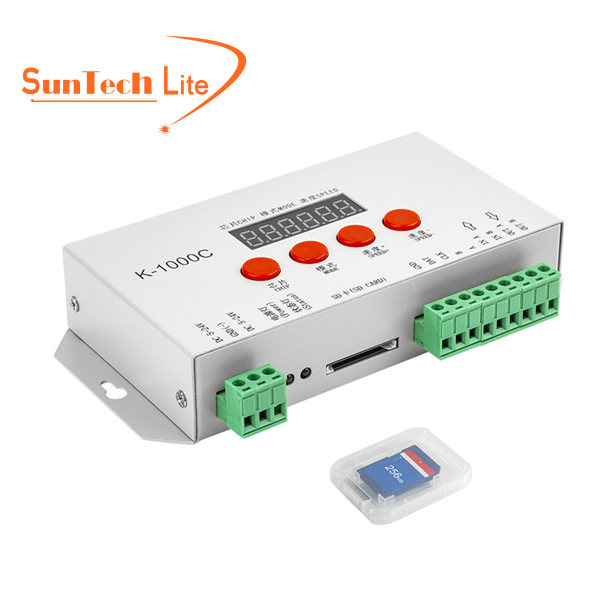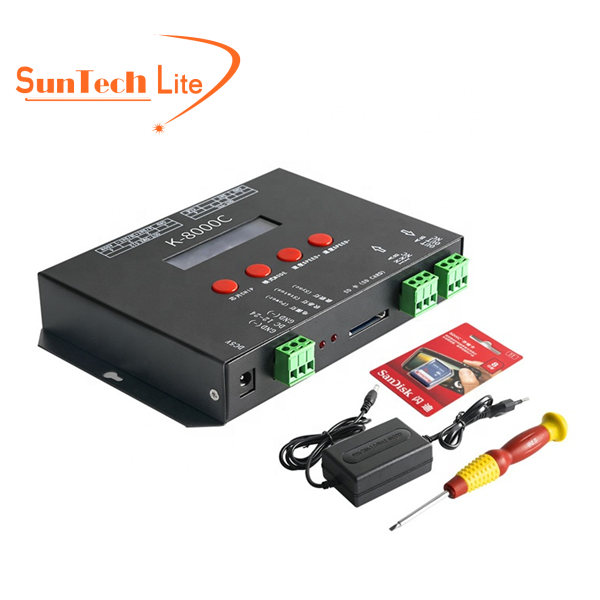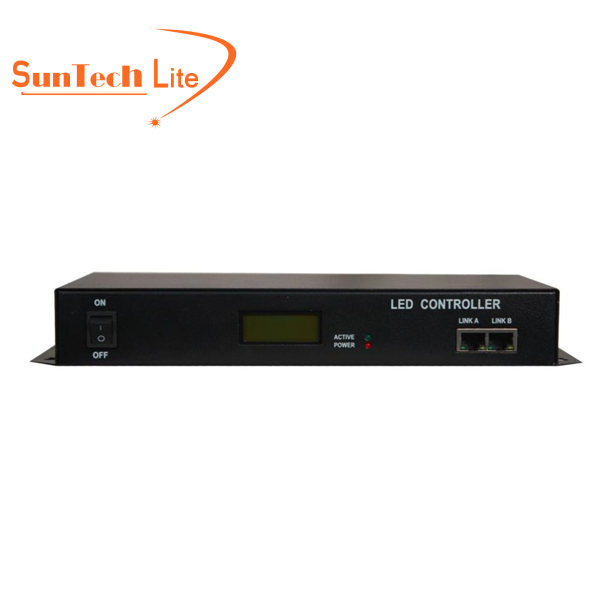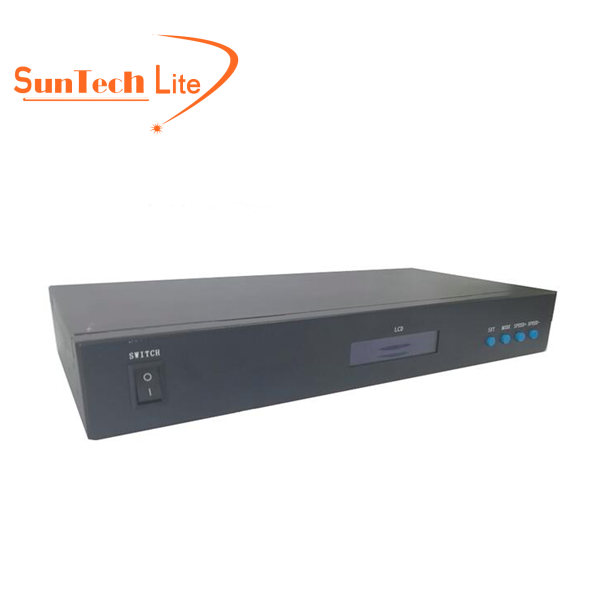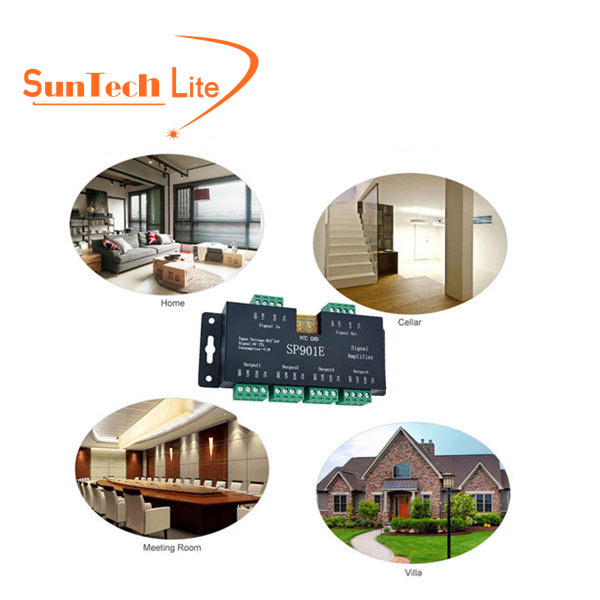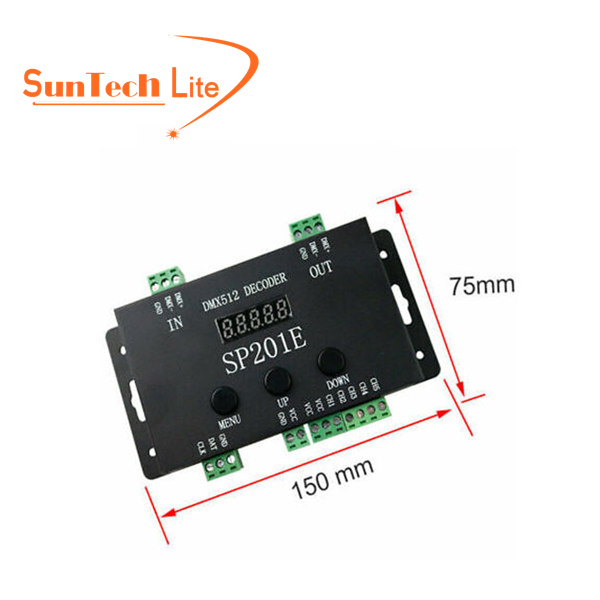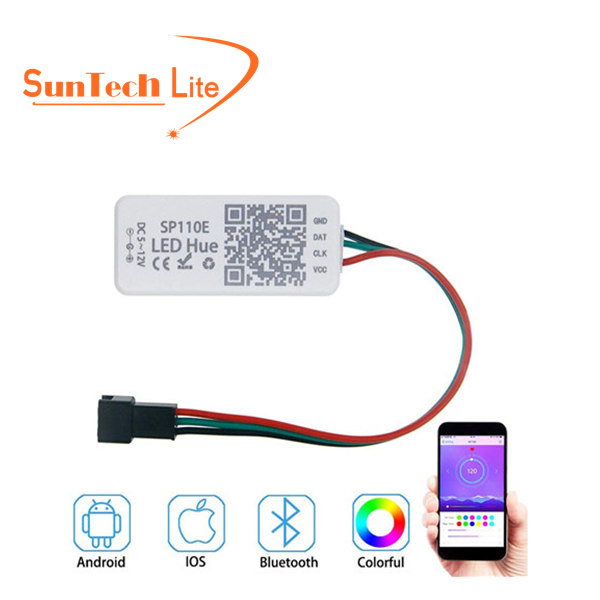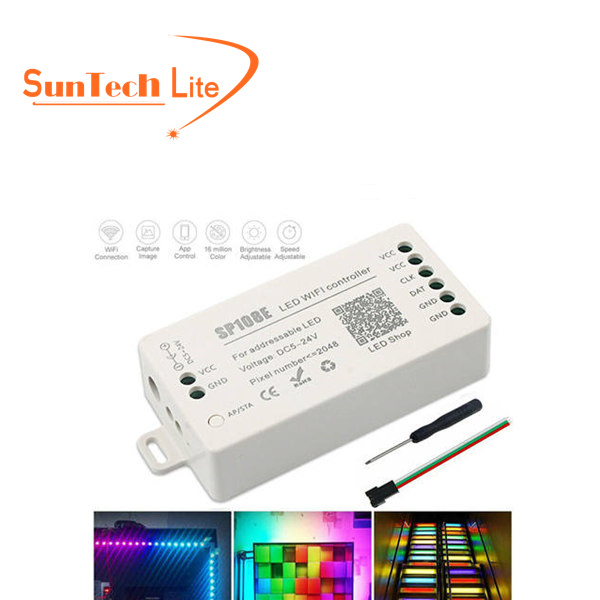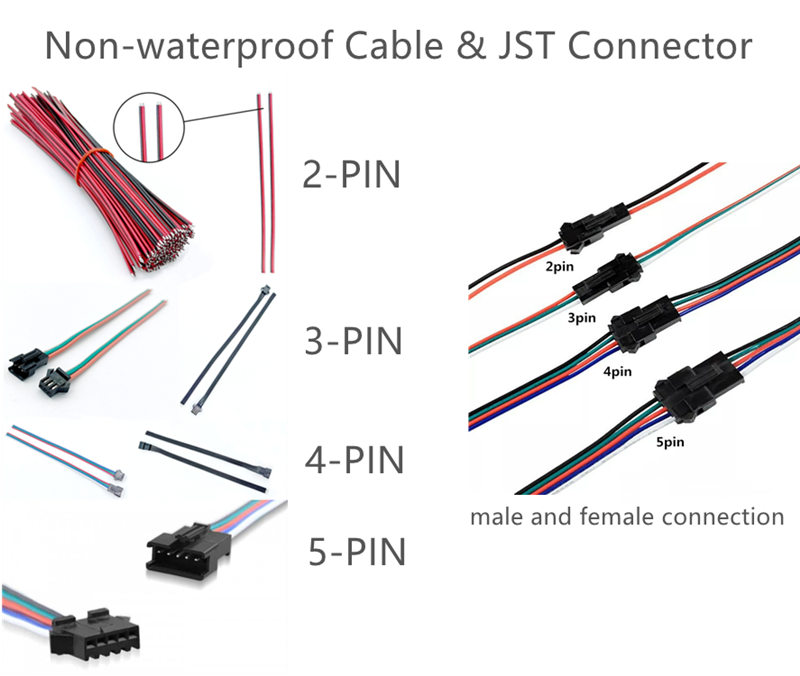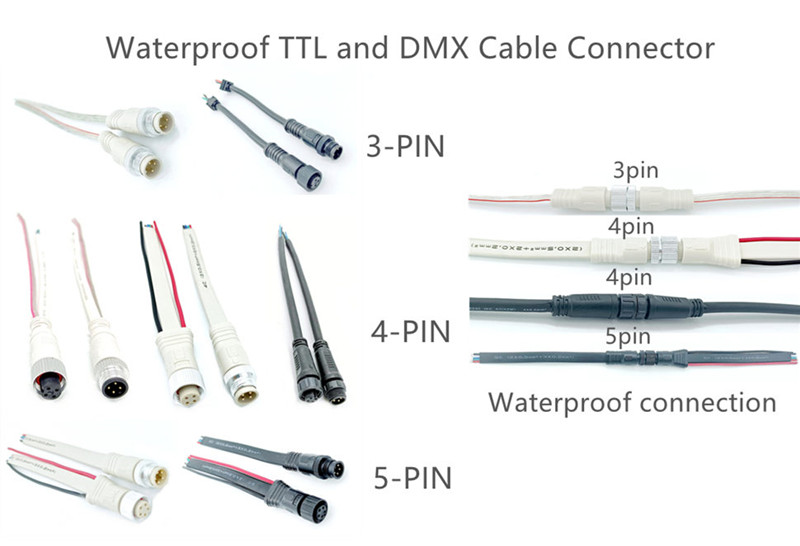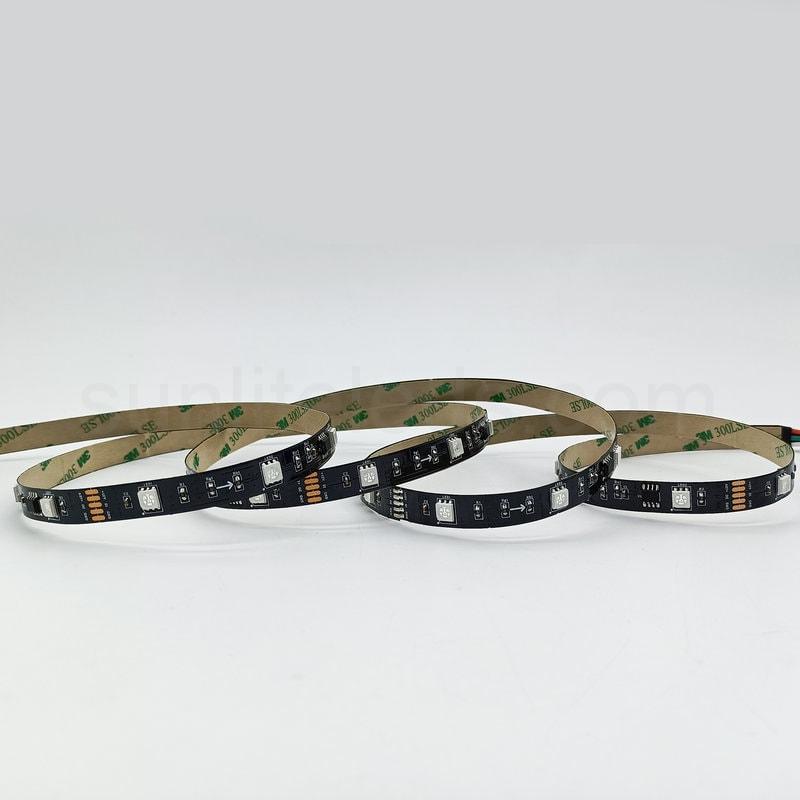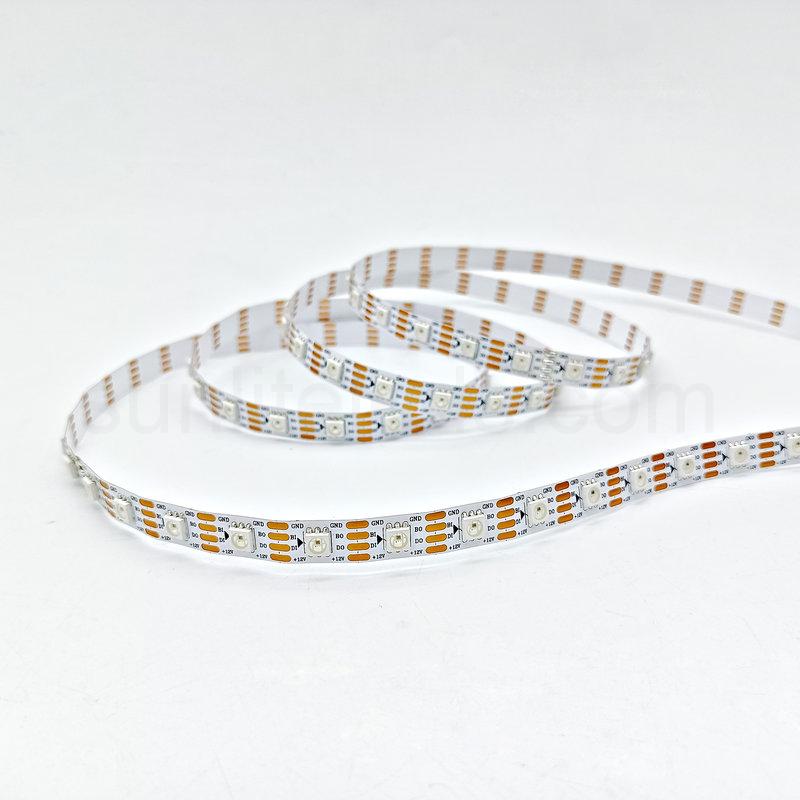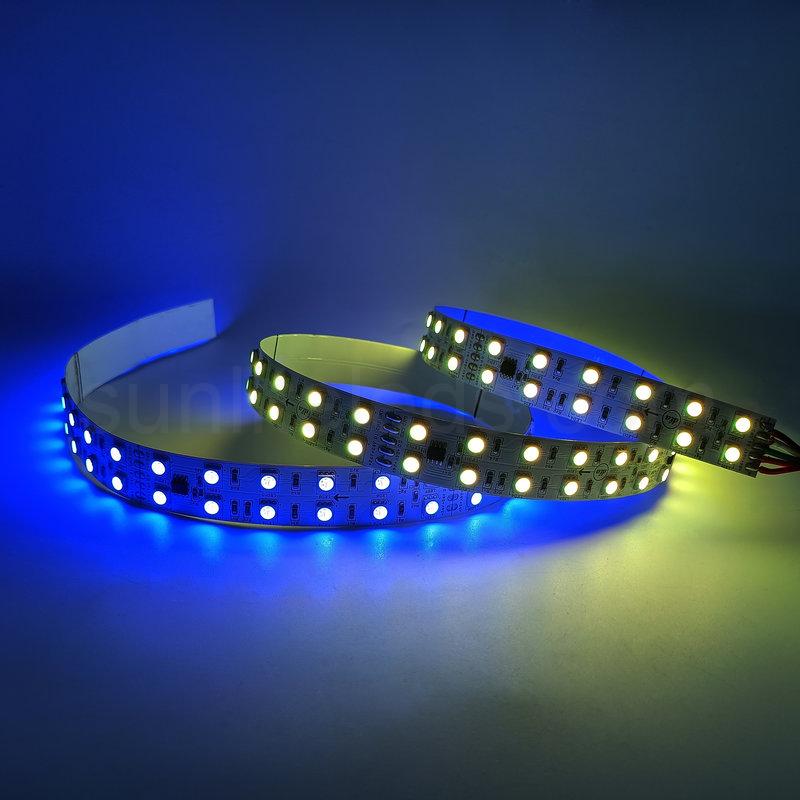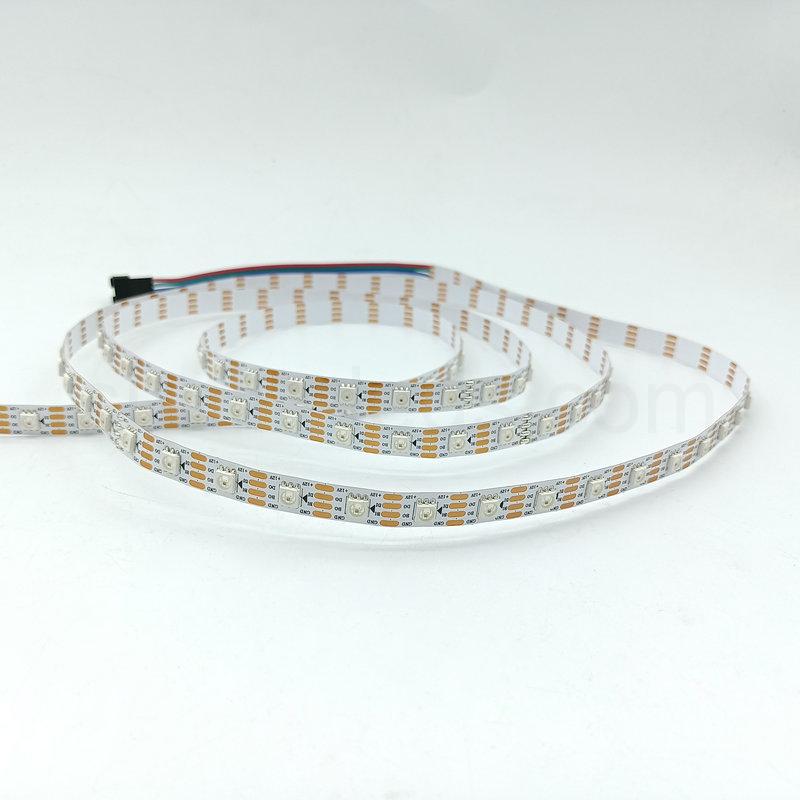TM1934 Break Continue LED Strip
Leading LED Pixel Lighting Products Manufacturer in China
TM1934 LED strip light is a type of double-channel data transmission digital LED strip. TM1934 LED strip light is a type of double-channel data transmission digital LED strip. There are 4 wires: V+, DI, BI, GND for power and signal to transfer. With externally separate TM1934 ICs and SMD5050 RGB LED chips, the TM1934 digital LED strip has high brightness and stable signal transfer.
The most notable feature of TM1934 LED strip is its pixel break-continue function. If one LED on the light strip is broken, the backup signal channel will continue to transmit data to the next normal LED, which will not affect the normal work of other LEDs.
Parameters
| Item | Voltage | Power | Pixel Quantity | LED Quantity | Cutting Unit | Break Continue | PCB Width |
|---|---|---|---|---|---|---|---|
| STE-TTL-4PIN-RGB-60-12V | DC12V | 14.4W/M | 20 pixels/m | 60 LEDs/m | 50mm | Yes | 10mm |
| STE-TTL-4PIN-RGB-72-12V | DC12V | 17.2W/M | 24 pixels/m | 72 LEDs/m | 41.6mm | Yes | 8mm |
| STE-TTL-4PIN-RGB-60-24V | DC24V | 14.4W/M | 10 pixels/m | 60 LEDs/m | 100mm | Yes | 10mm |
| STE-TTL-4PIN-RGB-72-24V | DC24V | 17.2W/M | 12 pixels/m | 72 LEDs/m | 83.3mm | Yes | 8mm |
TM1934 break continue LED strip Series
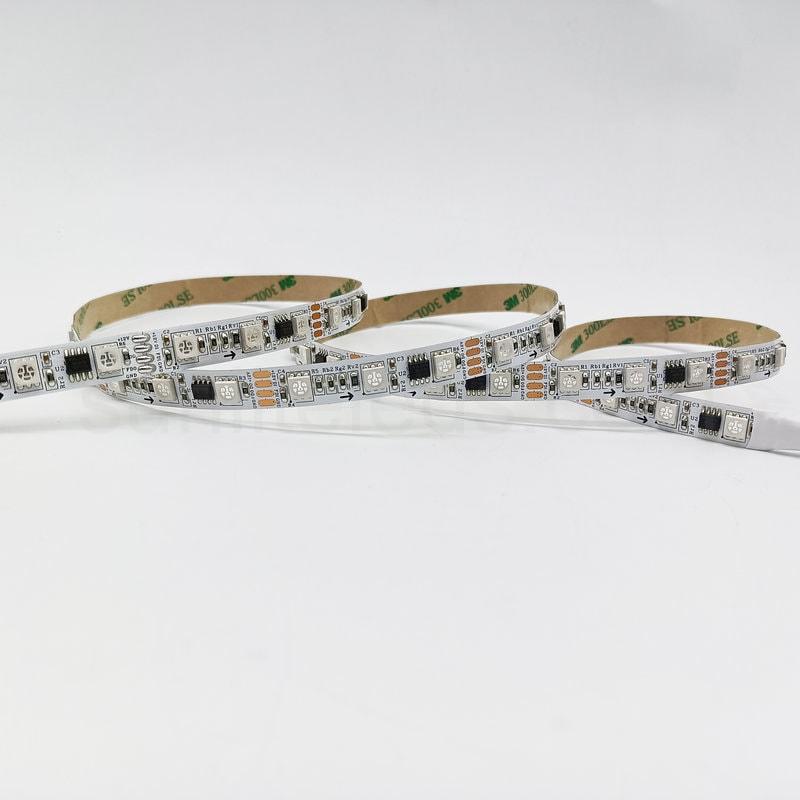
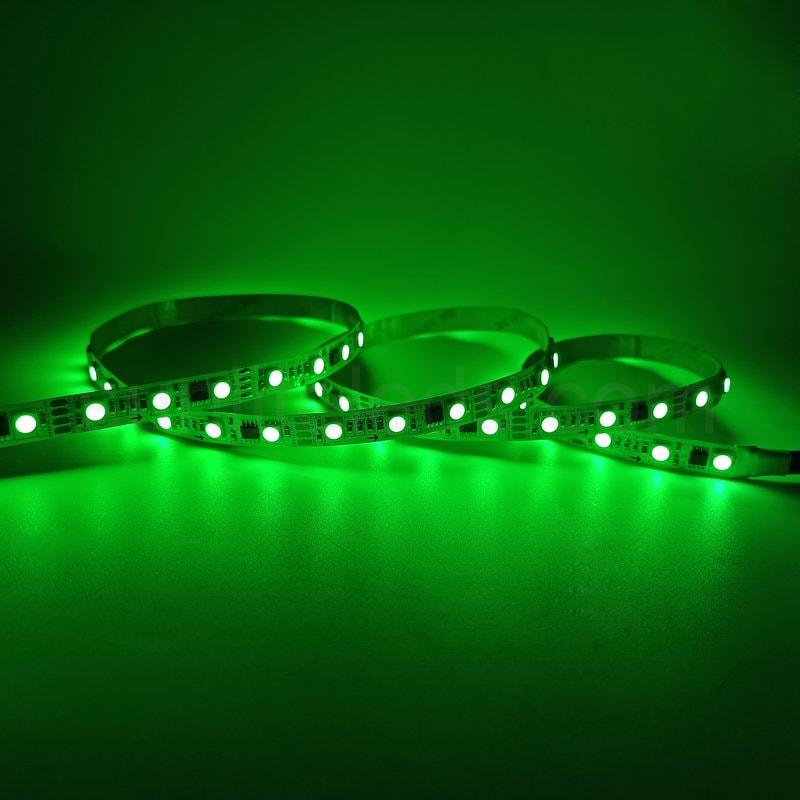
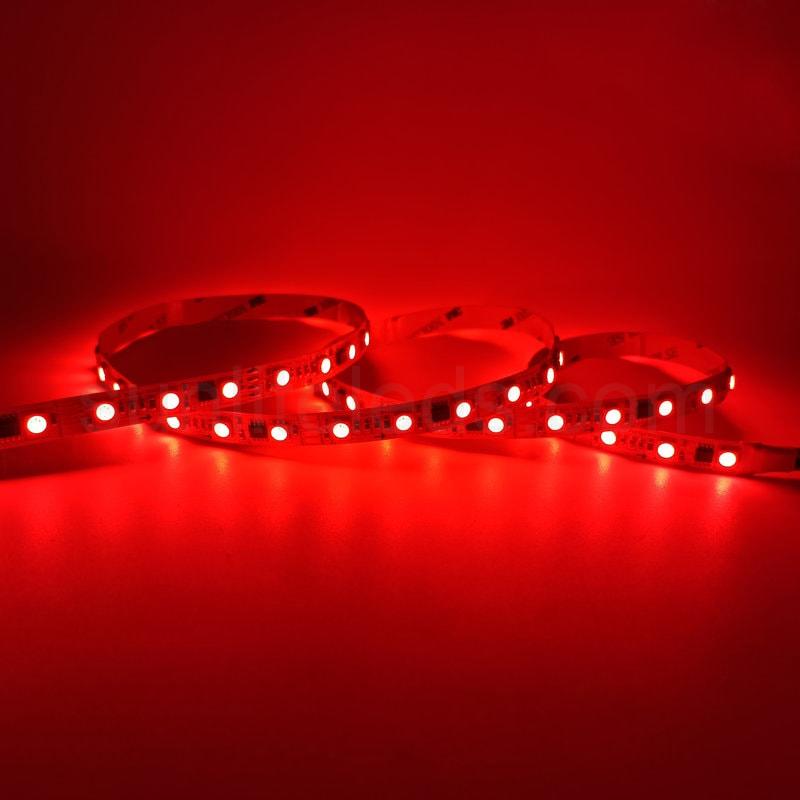
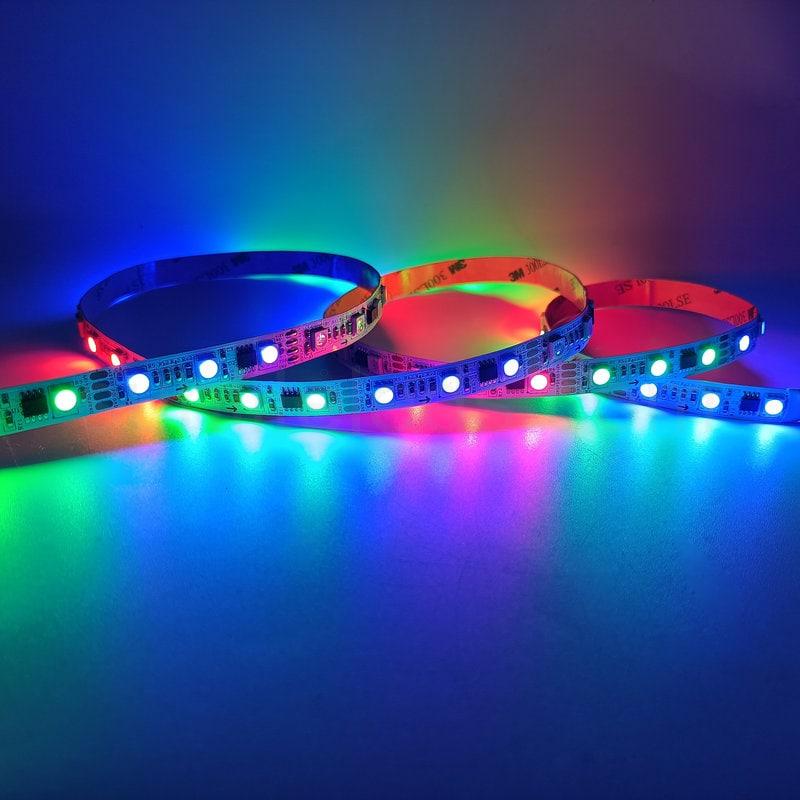
TM1934 Pixel LED Tape Lighting Display
Related Products You May Need:
Accessories:
LED controllers for TM1934 LED strip light
JST non-waterproof connectors & waterproof connectors
TM1934 vs WS2815, What's the difference?
While both TM1934 and WS2815 LED strip lights offer excellent performance and functionality, there are some key differences between them, we hope you can make a better choice for your particular application after reading this.
Table-TM1934 VS WS2815
| Parameter | TM1934 | WS2815 |
|---|---|---|
| Voltage | DC12V/24V | DC12V |
| Color | RGB | RGB |
| PWM Frequency | 1kHz | 1.2 kHz |
| Data Rate | 800kbs | 800kbs |
| IC Type | External IC | Built-in IC |
| Cut Unit | 3LEDs/ 6LEDs | 1LED |
| Break Continue | Yes | Yes |
| Price | Low | Moderate |
LED Strip Voltage
The TM1934 is a type of external IC LED tape light, for the DC12V model, each IC drives 3LEDs, and for the DC24V model, each IC drives 6 LEDs.
PWM Frequency
PWM frequency is the rate at which the LED driver circuitry toggles on and off to control the LEDs’ brightness. The LED system’s flicker and dimming performance may be impacted by the variation in PWM frequency.
In the case of TM1934 and WS2815, TM1934’s PWM frequency is 1000Hz and WS2815’s is 1.2 kHz. While flickering or obvious banding in the light output may occur at lower PWM frequencies, smoother and more consistent dimming may occur at higher PWM frequencies. Yet, a higher PWM frequency may also result in a rise in power consumption and circuitry heat production.
Data Rate
The TM1934 has the same data rate than the WS2815 which is 800kb per second.
External IC VS Built-in IC
The TM1934 is a type of external IC LED tape light, for the DC12V model, each IC drives 3LEDs, and for the DC24V model, each IC drives 6 LEDs. However, the WS2815 LED strip is the built-in IC tape light, each LED has an internal IC, which makes the strip light control more precise control.
Cost
The cost of TM1934 and WS2815 LED strips may vary by specific manufacturer and supplier. In general, the price of WS2815 is slightly higher than the TM1934 LED strip, because of its individual control and unique resume function.
Conclusion
A flexible and adaptable lighting option, the TM1934 break continue LED strip has a number of benefits over other kinds of LED strips. As well as offering more versatility and customization thanks to its break-continue design, its high-quality lighting and energy efficiency make it a popular option for a variety of applications. The TM1934 break continue LED strip is a good option for anyone searching for a dependable and adaptable lighting solution due to its simple installation and broad range of uses.

